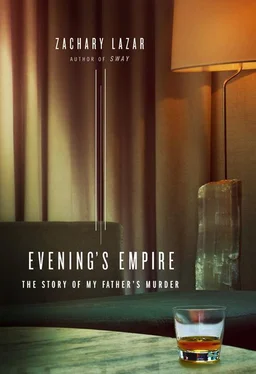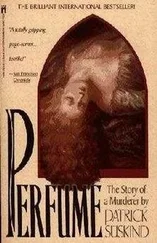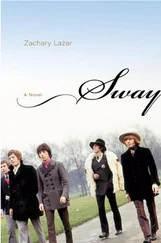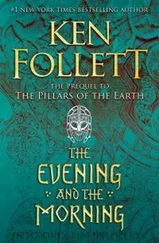No buyer, no land. Out of nowhere, a $3,500 mortgage with an address and a phone number and a credit history. The buyer and the land were ciphers anyway. No one ever came to see their lots — their lots were too far away to go and see. It would be years before they had enough equity to claim title to their lots. They put 10 percent down, signed a mortgage for the rest, and you sold the mortgage for cash. There was no real reason not to sell the same lot over and over again — no one ever owned it or even knew if it was there. It got him thinking about the possibility of using no land at all.
Dear ______,
It has come to our attention that the purchaser of lot X in the Arizona Land Corporation subdivision Y is no longer current with payments on mortgage Z, as administered for us by the Minnesota Title Company. As per our contractual agreement, Diamond Valley Corp. is hereby reassigning you Arizona Land Corporation mortgage A on lot B in the same subdivision, of equivalent value. Your monthly disbursement will remain the same. We hope that our prompt attention to this matter will inspire your continued confidence in your investment program with Diamond Valley.
Insects, creosote, mesquite. Dry land under sunlight, dry land under darkness — the silence of rocks, the silence of sand in wind, the dark sky, the stars. The stillness of scrubland, dry washes, box canyons, gulches. The barbed wire sagging and rusting on posts.
Before you could even put in a road or a water line, you first had to find investors to buy the land as it was. Or if you could not find them, you could invent them. No need then for the slide presentation to a room full of sixty-year-olds in a hotel restaurant in Buffalo. No need for the boiler room, the ten salesmen claiming that the Gallo Wine Company was moving three thousand jobs to Navajo County and land prices were about to soar.
Build up a company on paper, inflating its value with a flood of sales, a flood of cash flow. After compromising its assets, taking as much as you could, sell the company to someone else. He would find, over time, that the process usually took about eighteen months. He sold Lee Ackerman Diamond Valley in early 1965, more or less on this schedule.
They went to the police department on Washington Street — business partners now — to register Warren as an out-of-state convict. This was on February 18, 1965. Afterward, Ackerman drove Warren uptown to North 44th Street to speak to the real estate commissioner, J. Fred Talley, about finally getting a license. In his briefcase, Warren had an envelope containing $200, a measly figure he had picked himself, but having seen Talley a few times before, he knew he had not underestimated him.
He had “spent some time with Uncle Sam,” he’d told Ackerman, implying that it was for tax evasion, something that could have happened to anyone with the wrong accountant. “Lots of hassles and lots of ways around the hassles — that’s what my year in Danbury was like. Probably not so different from the air force,” he’d said. It somehow sealed their relationship, the casual way he spoke of his time in prison. Ackerman happened to belong to a group called Heart, Inc., which helped find employment for rehabilitated convicts. Warren’s past made him feel like a friend, not just a business partner. His rehabilitation was an indication of things they had in common: resilience, grit, an instinct that the world was manageable if you had half a brain.
“This is Uncle Fred,” Ackerman said, standing behind the commissioner, leaning forward with his hands on Talley’s shoulders. “Uncle Fred is a tough old sumbuck.”
Talley was still seated at his desk, looking dyspeptically at Warren with small eyes behind large, dark-framed glasses. He was a fat man with a sunken chin and protruding ears and a pinched, inverted mouth — a slumping octopus of a man in a brown suit and a bolo tie.
“Nice to see you, Fred,” said Warren drily.
“Don’t get me all greased up. It’s too early in the day to get fucked,” Talley said.
“All this barnyard talk. I’m not used to it.”
Talley put a fist to his mouth and coughed. “Lee’s an old friend of mine,” he said. “That’s why you’re here. You know how many people I have working under me?”
“I have no idea.”
“Three. Three investigators for the state of Arizona. All I can do is make your life a little harder or easier. Just like you can make mine harder or easier.”
Ackerman patted Talley’s shoulders and indicated that Warren should sit down in one of the chairs in front of the commissioner’s desk. “I hear you got top scores on the exam,” Ackerman said, looking at Warren.
Warren didn’t answer. He saw that Talley had the license already prepared, saw it sitting on top of a pile of documents. Talley slid it across his desk and Warren looked at the commissioner’s signature and the state seal and then at his own name, Nathan J. Warren, typed in beside the words Western Growth Capital, Inc., the name of the land company he had just started with Ackerman after selling him Diamond Valley.
“Tell your son he can start work next month,” Warren said to Talley.
“Give him till May. Let’s say May fifteenth.”
“Fine. I’ve got something for you in a little envelope here.”
“Tell your friend John Roeder it’s been a long time.”
“I’ll do that. I’m sure we’ll all be seeing a lot of each other from now on.”
The big fish answer to the small fish. That’s what Warren’s mentor, Nathan Voloshen, had liked to say. The small fish were the ones who would protect you from the big fish. The small fish — the party officers, the county and state bureaucrats — were the ones who enabled the big fish — the judges, the politicians — to live out their public lives.
At Voloshen’s level, it was the New York Stock Exchange, it was building highways in Florida, it was doing favors for the Duvalier government in Haiti. Voloshen was an attorney and lobbyist who did his deals not on K Street but right inside the office of the U.S. Speaker of the House, John McCormack. He had brought Warren to Washington, D.C., just a few days after Warren’s parole in 1960, and had had him put his feet up on McCormack’s desk. He had asked him how it felt. It had felt like a veil of immunity. Some alchemy of odors and fabrics and dark mahogany had made the law seem a perfect abstraction, a power you partook of by desecration, by putting your feet up on a congressman’s desk and dialing a number on his phone.
A year later, he was in Phoenix. Five years later, he was a millionaire.
David Rich was speaking to his accountant, Ed Lazar, the door closed on an office covered in framed citations for contributions to Israel and local charities. Rich was a small, neat man with an animated face and cheerfully mischievous eyes. His dark suit, and the solemnity of what they were discussing, were somehow lightened by his East London accent, which sounded almost Australian.
“I watched Lee Ackerman turn into someone I didn’t recognize,” he said, leaning back in his chair. “I’ve known him for eighteen years. Most of that time we were in business together. He was handsome, he had a good head for numbers, you couldn’t help but like Lee. But then he came to me before Diamond Valley’s collapse and asked me to buy twenty-five thousand dollars of mortgages.”
They were worthless — Ackerman had mortgaged the same piece of land two or three times, thinking, perhaps, that it didn’t matter, that since the time payments were so small, no one was ever going to take title anyway. But half of the mortgages weren’t even current. Rich had lost the whole $25,000.
Читать дальше












